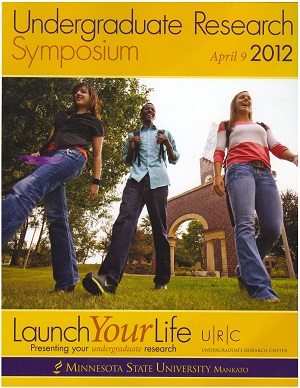Korean Adoptees' Experiences and their Connection to Racial and Ethnic Identity
Location
CSU 202
Start Date
9-4-2012 11:00 AM
End Date
9-4-2012 12:00 PM
Student's Major
Communication Studies
Student's College
Arts and Humanities
Mentor's Name
Sachi Sekimoto
Mentor's Department
Communication Studies
Mentor's College
Arts and Humanities
Description
Agathon (2011) states that in 2010, more than one million adoptees had been involved in international adoption, and approximately 200,000 of them came from South Korea. There are a growing number of international adoptions from South Korea ever since the end of Korean War in 1953. However, there is very little research about Korean adoptees’ experiences and how those experiences form their racial and ethnic identity. The purpose of research is to explore the significant life experiences of Korean adoptees and examine how their experiences have shaped their racial and ethnic identity. For this research, racial identity is defined as a sense of group identity based on one’s perception that he/she shares with a particular racial group, and ethnic identity is defined as a social identity based on the culture of one’s national group. I will conduct case studies of 3-5 Korean adoptees through in-depth face-to-face interviews. Some of the themes I hope to address from the case studies include: 1.) How Korean culture has influenced the adoptees, 2.) How mainstream American culture has influenced the adoptees, 3.) How Korean adoptees experience stereotypes and racism in the United States, and 4.) How Korean adoptees identify themselves as a member of their racial and ethnic group. I hope to gain a better understanding of Korean adoptees and their exploration of racial and ethnic identity in order to help further the research on interracial and international adoption.
Korean Adoptees' Experiences and their Connection to Racial and Ethnic Identity
CSU 202
Agathon (2011) states that in 2010, more than one million adoptees had been involved in international adoption, and approximately 200,000 of them came from South Korea. There are a growing number of international adoptions from South Korea ever since the end of Korean War in 1953. However, there is very little research about Korean adoptees’ experiences and how those experiences form their racial and ethnic identity. The purpose of research is to explore the significant life experiences of Korean adoptees and examine how their experiences have shaped their racial and ethnic identity. For this research, racial identity is defined as a sense of group identity based on one’s perception that he/she shares with a particular racial group, and ethnic identity is defined as a social identity based on the culture of one’s national group. I will conduct case studies of 3-5 Korean adoptees through in-depth face-to-face interviews. Some of the themes I hope to address from the case studies include: 1.) How Korean culture has influenced the adoptees, 2.) How mainstream American culture has influenced the adoptees, 3.) How Korean adoptees experience stereotypes and racism in the United States, and 4.) How Korean adoptees identify themselves as a member of their racial and ethnic group. I hope to gain a better understanding of Korean adoptees and their exploration of racial and ethnic identity in order to help further the research on interracial and international adoption.
Recommended Citation
Fordbord, Max. "Korean Adoptees' Experiences and their Connection to Racial and Ethnic Identity." Undergraduate Research Symposium, Mankato, MN, April 9, 2012.
https://cornerstone.lib.mnsu.edu/urs/2012/oral-session-07/4




